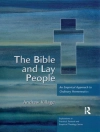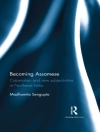The US invasion of Iraq in 2003 was done mainly, if one is to believe US policy at the time, to liberate the people of Iraq from an oppressive dictator. However, the many protests in London, New York, and other cities imply that the policy of “making the world safe for democracy” was not shared by millions of people in many Western countries. Thinking about this controversy inspired the present volume, which takes a closer look at how society responded to the outbreaks and conclusions of the First and Second World Wars. In order to examine this relationship between the conduct of wars and public opinion, leading scholars trace the moods and attitudes of the people of four Western countries (Great Britain, France, Germany and Italy) before, during and after the crucial moments of the two major conflicts of the twentieth century. Focusing less on politics and more on how people experienced the wars, this volume shows how the distinction between enthusiasm for war and concern about its consequences is rarely clear-cut.
Содержание
List of Contributors
Chapter 1. ‘Old Europe’ and the Legacy of Two World Wars
Lothar Kettenacker and Torsten Riotte
Chapter 2. Prevention or Regulation of War? The Hague Peace Conferences as a limited Tool for Reforming the international System before 1914
Jost Dülffer
Chapter 3. ‘The Spirit of 1914’: A Critical Examination of War Enthusiasm in German Society
Gerhard Hirschfeld
Chapter 4. Construction and Deconstruction of the Idea of French ‘War Enthusiasm’ in 1914
Nicolas Beaupré
Chapter 5. The Mood in Britain 1914
Hartmut von Pogge Strandmann
Chapter 6. The First World War in the History of the Weimar Republic
Gerd Krumreich
Chapter 7. Fascism and Legacy of the Great War
Angelo Ventrone
Chapter 8. The French Desire for Peace and Security in the 1920’s
Jean-Claude Allain
Chapter 9. Britain in the Wake in the Great War
Jay Winter
Chapter 10. Germany: War without Public Backing
Hans Mommsen
Chapter 11. The French Entry into the War in September 1939: Between Reluctans and Resignation
Barbara Lambauer
Chapter 12. Great Britain: Declaring War as a Matter of Honour
Lothar Kettenacker
Chapter 13. Disillusionment, Pragmatism, Indifference: German Society after the ‘Catastrophe’
Clemens Vollnhals
Chapter 14. The French after 1945. Difficulties and Disappointments of an Immediate Post-War Period
Fabrice Grenard
Chapter 15. Great Britain: Remembering a Just War (1945-1950)
Toby Haggith
Chapter 16. Italy after 1945: War and Peace. Defeat and Liberation
Gustavo Corni
Bibliography
Index
Об авторе
Torsten Riotte is a lecturer in History at the Goethe University Frankfurt. Educated at Cologne and Cambridge Universities, he worked at the German Historical Institute London (2003–2007) where he edited the multi-volume edition British Envoys to Germany, 1815–1866. He is the author of a number of articles on British and European history and co-editor of The Hanoverian Dimension in British History, 1714–1837 (2007) and The Diplomats’ World. A Cultural History of Diplomacy (2008).












